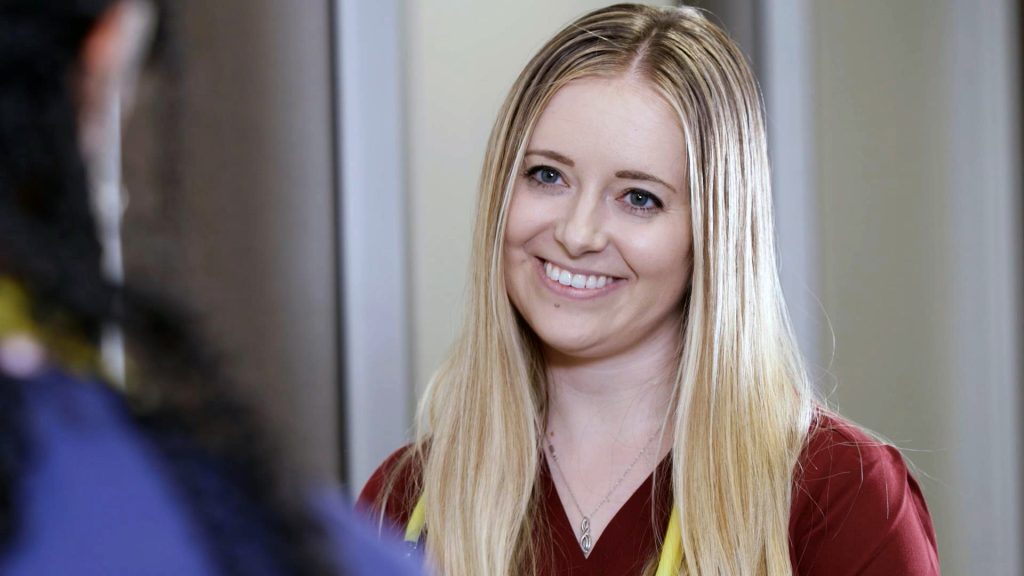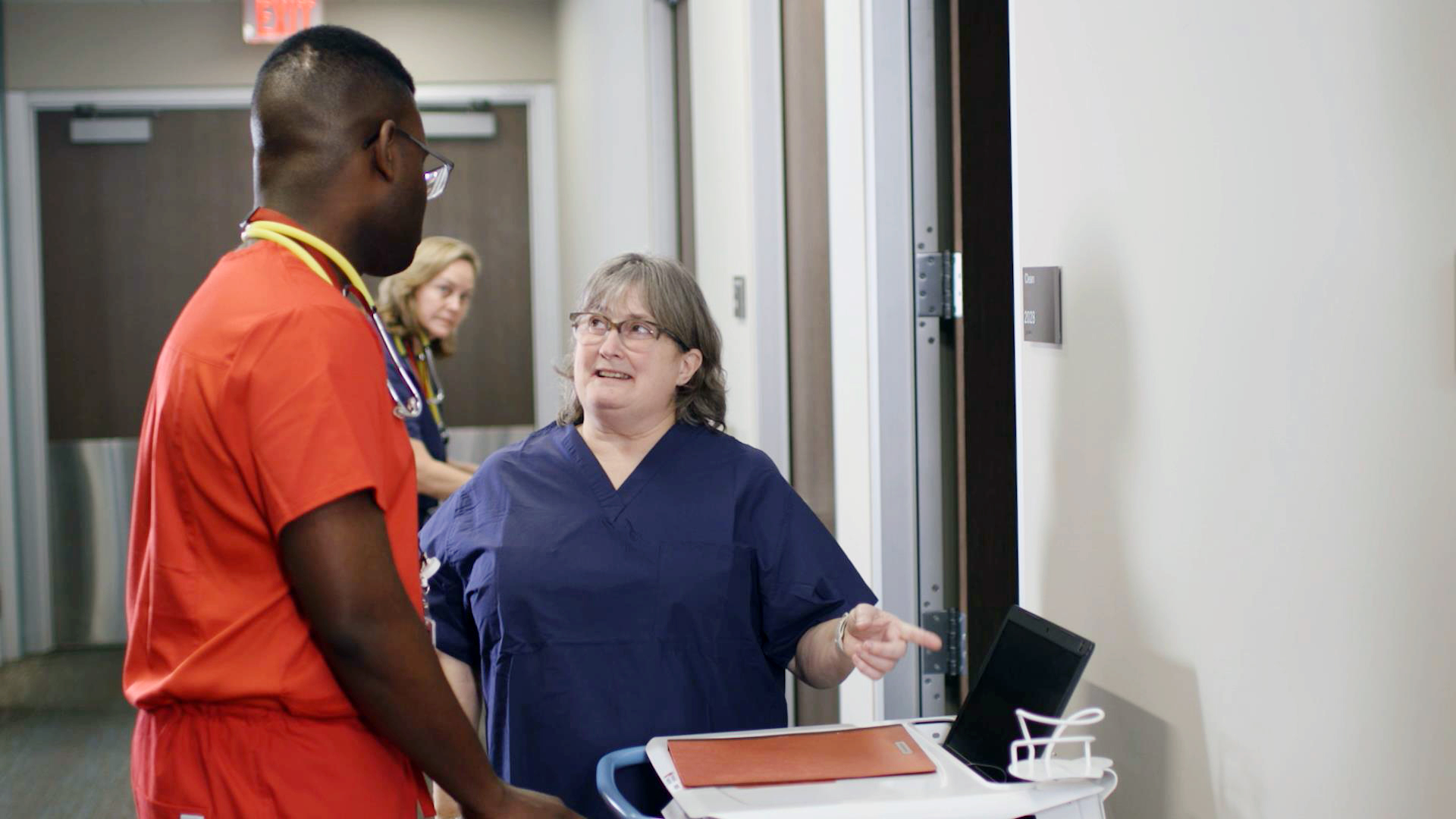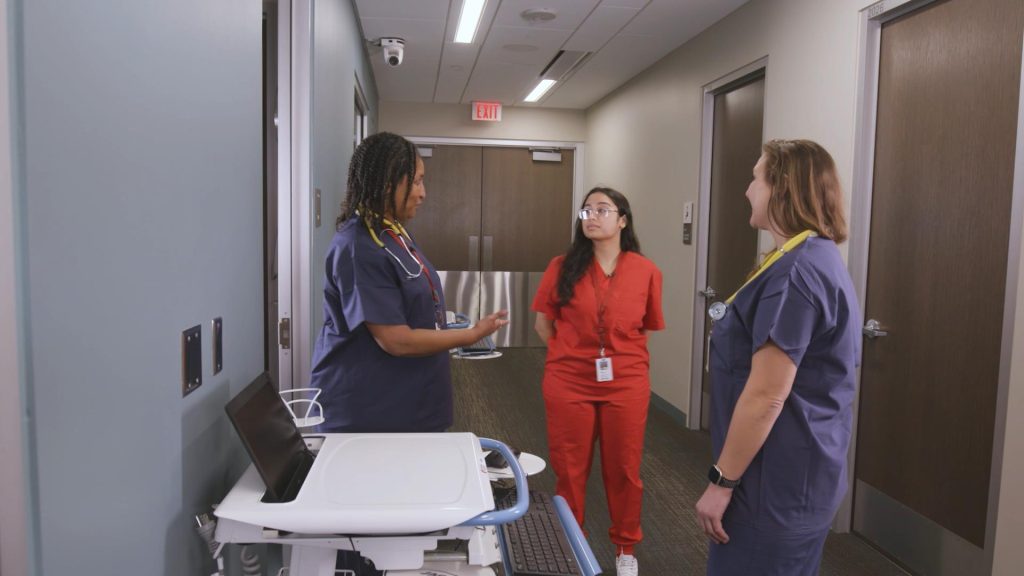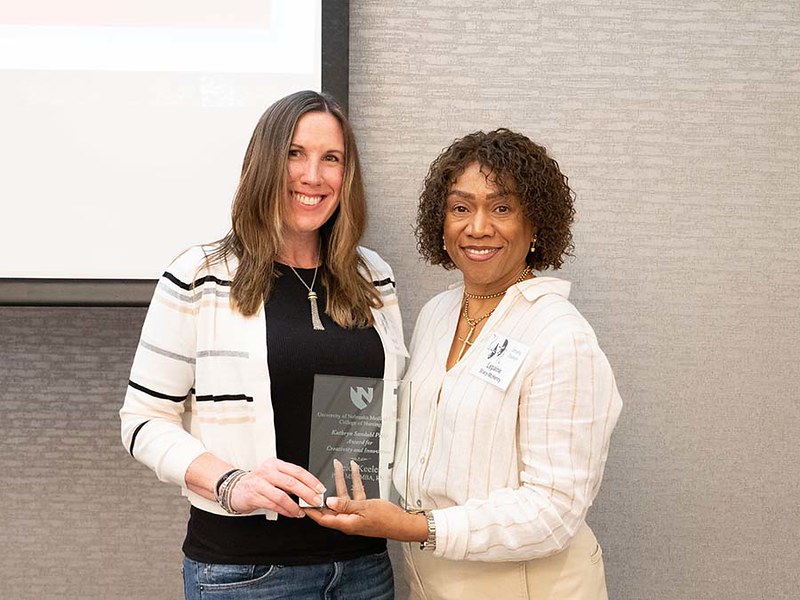Nurse Preceptor Training: Delivered
Where you Need It Most
Training materials for preceptors and clinical instructors, available both through live sessions and on-demand.
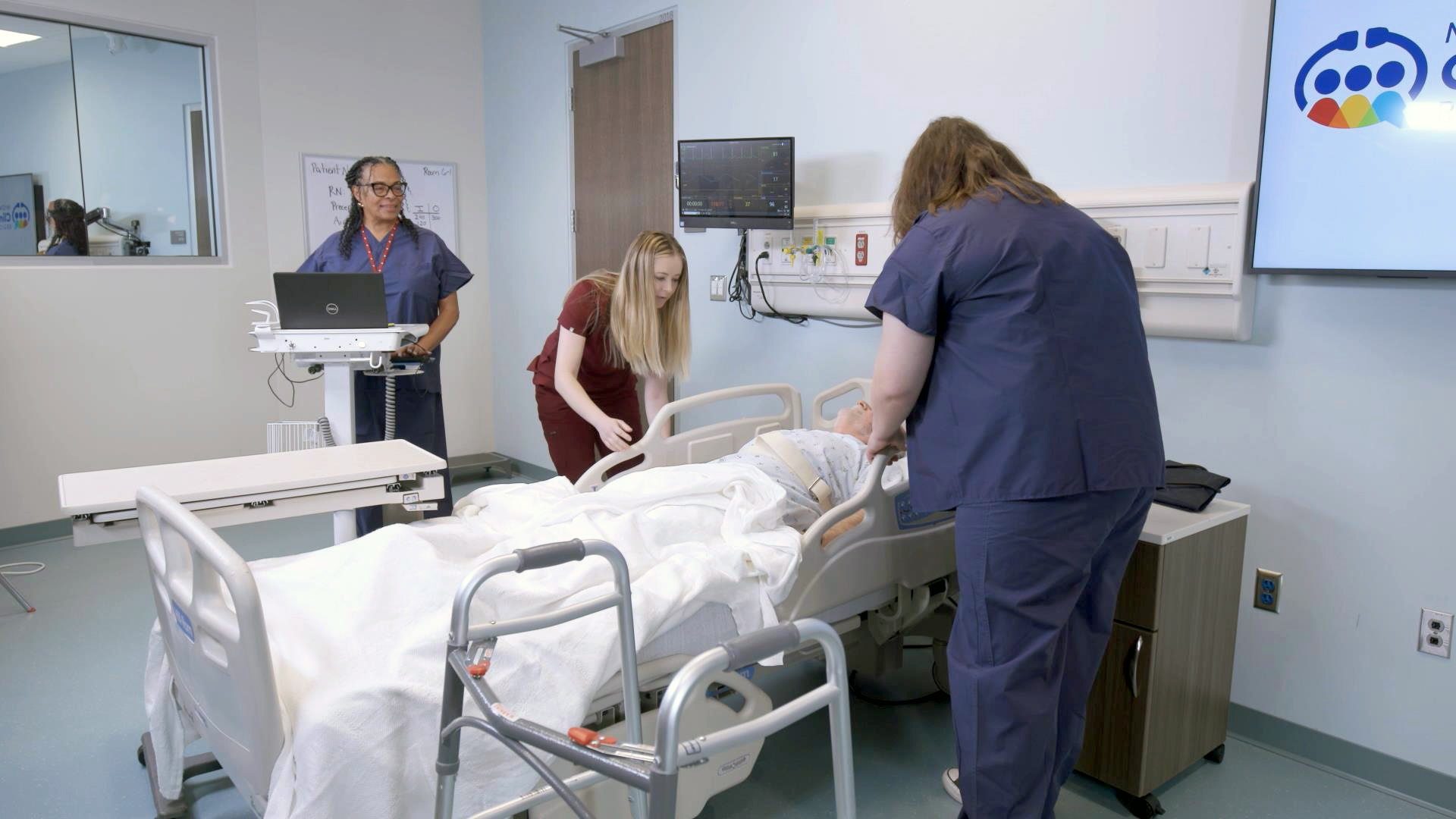
Clinical & Academic Partners: Building
Preceptor Community
Develop connections and community for preceptors and instructors.
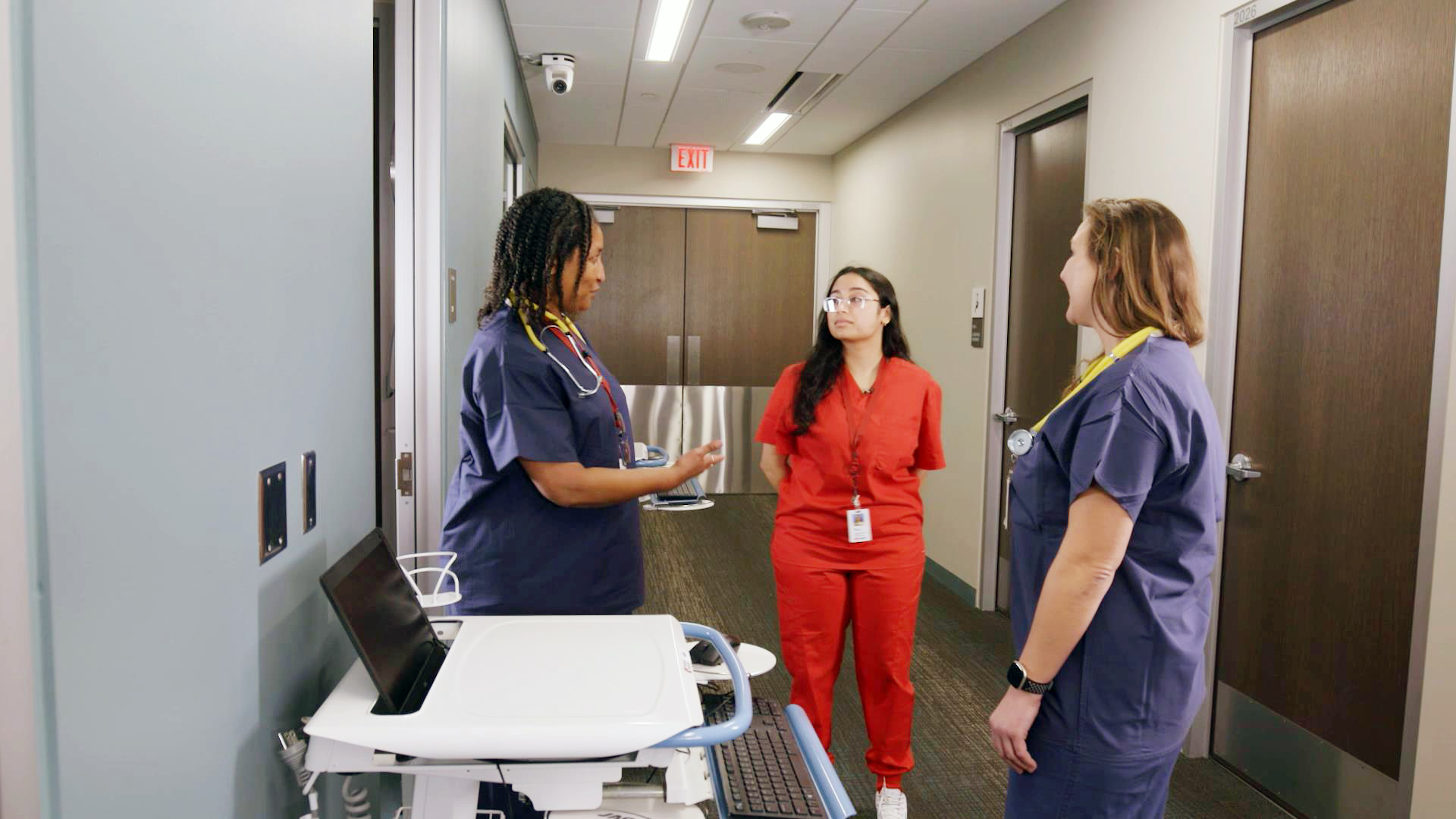
Preceptor Stories: Sharing
experiences and needs
Raise awareness for the lived experiences of nurses who provide clinical onboarding.
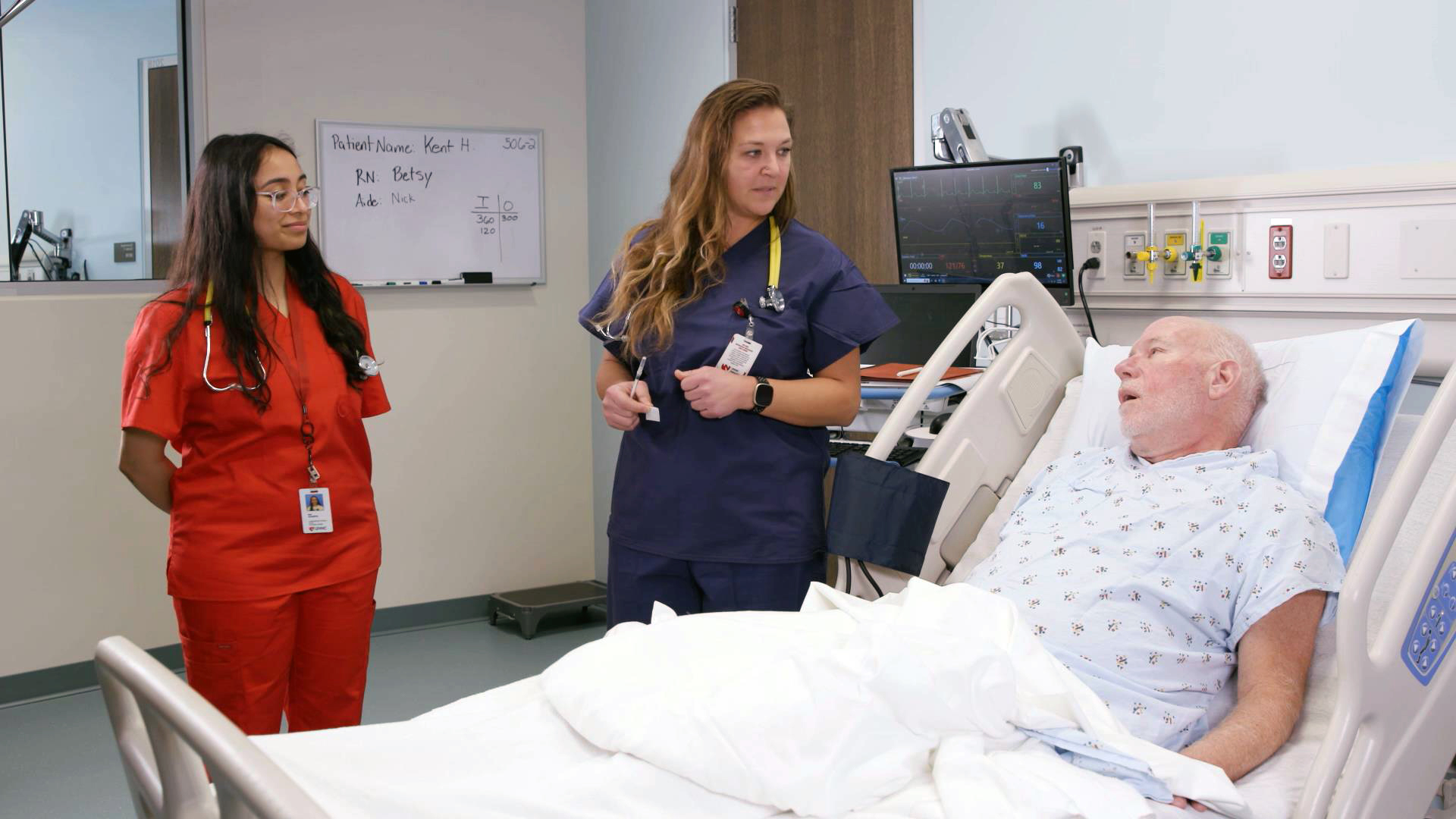
MCIRN Innovation Summit
Collaborative Action for Preceptor Practice
KU Edwards Campus Overland Park, KS
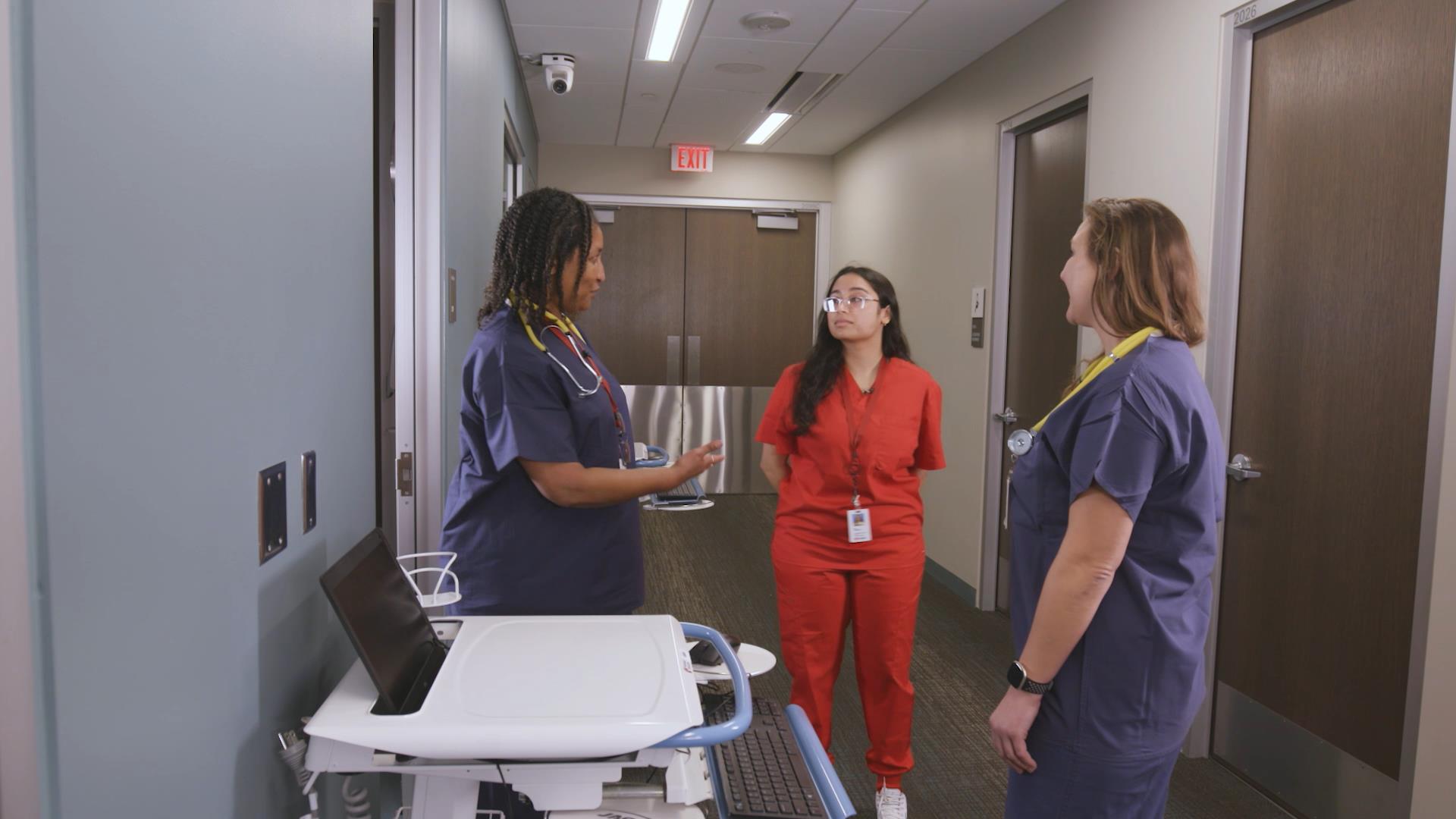
Partners & Collaborators













Nursing Challenges and Current Landscape
Insights into the Complexities of Nursing Shortages, Education Constraints, and Diversity Disparities
Nurse Shortage
Crisis
33 nurses are the average shortage hospitals face at any given time, compounded yearly due to significant RN exits and retirement.
Educational
Constraints
91,000+ potential students turned away due to budget constraints, faculty shortages, and classroom limitations. Faculty burnout amplified by demanding workload, competing responsibilities, work-life imbalance, and compensation gaps.
Accessibility
Challenges
1 in 4 Americans has at least one disability. Nursing students present with diverse needs related to accessibility in their learning environments.
Workforce Dynamics
The demanding clinical environment and staffing shortages lead to stress and strain among nurses
22.5%
RN turnover rate
15.7%
RN vacancy rate
105%
average hospital staff turnover
62%
nurses experiencing burnout
Preceptor Predicament
44% less earnings for nurse faculty contribute to burnout, dwindling preceptors, and lack of recognition.
Clinical Preceptor Support
Preceptors face increased workload balancing patient care and teaching, lacking consistent training and recognition. Incentives and standardized training nationwide is essential.
Technology Strain
Fractured Time
Rapid technology advancements, such as EMR, computers, telehealth, and medical technology, fracture a nurse's time, impacting workload and the ability to train and acclimate new nurses effectively.
Need for Quick Solutions
With the complexity of healthcare increasing exponentially each year, nurses who train in the clinical environment need quick answers to difficult training scenarios.
Nursing Workforce & Faculty Disparities
Minority Representation
40% of total minority population out of which
19.4%
nursing workforce
19.2%
nursing faculty
Male Representation
49.6% of total general male population out of which
9.4%
nursing workforce
7.4%
nursing faculty
Student Disparities
Minority Students
- 40.8% in baccalaureate
- 38.9% in master's
- 35.5% in PhD
- 38.9% in DNP programs
Male Students
- 12.6% in baccalaureate
- 11.7% in master's
- 11.2% in PhD
- 14.1% in DNP programs
Clinical Education & Precepting Barriers
Demand for Clinical Sites
There is high demand for clinical sites & can be supported by training alternatives for students and using advanced simulation technologies.
Rural Communities
Rural communities and smaller organizations, both academic and clinical, need collaborations to provide advanced education solutions such as simulation.
Student Education
Foundational student education needs to be strong to adequately and safely prepare students for their clinical education practice.
Clinical Site Insufficiencies
Clinical site insufficiencies were reported as the most frequent reason (69%) and most important reason (40%) for turning away qualified baccalaureate nursing school applicants.
Proposed Approach
Landscape for Clinical Preceptors.
Understand organizational dynamics shaping student precepting for effective mentorship within institution.
Recognition & Incentives
Explore ways of formal recognition and incentives for precepting, including monetary and non-monetary incentives.
IT/Technology
Explore technological solutions facilitating communication, optimizing preceptorship through innovative IT integration.
Educational Program Processes
Explore streamlined support systems connecting preceptors and clinical faculty for seamless student guidance.
Preceptor-Clinical Instructor Academy
Discover curriculum and communication tools empowering preceptors and clinical instructors for effective mentorship.
Join Our Upcoming
Events to Take the First Step!
Nurses Stories: Connecting Through Experience
Empowering the Future: Inspiring Stories of Passion, Mentorship, and Growth from Nursing Preceptors.


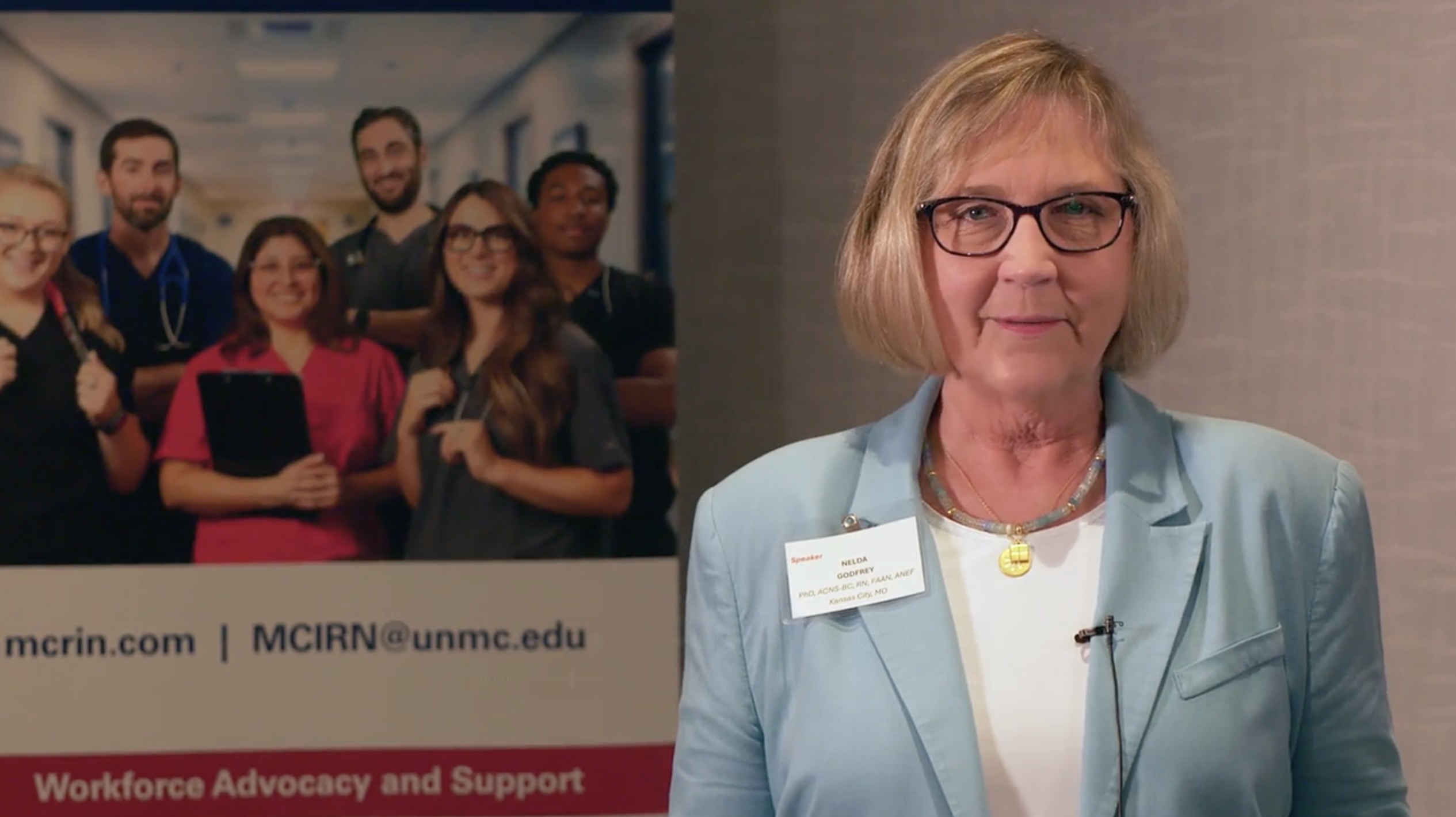



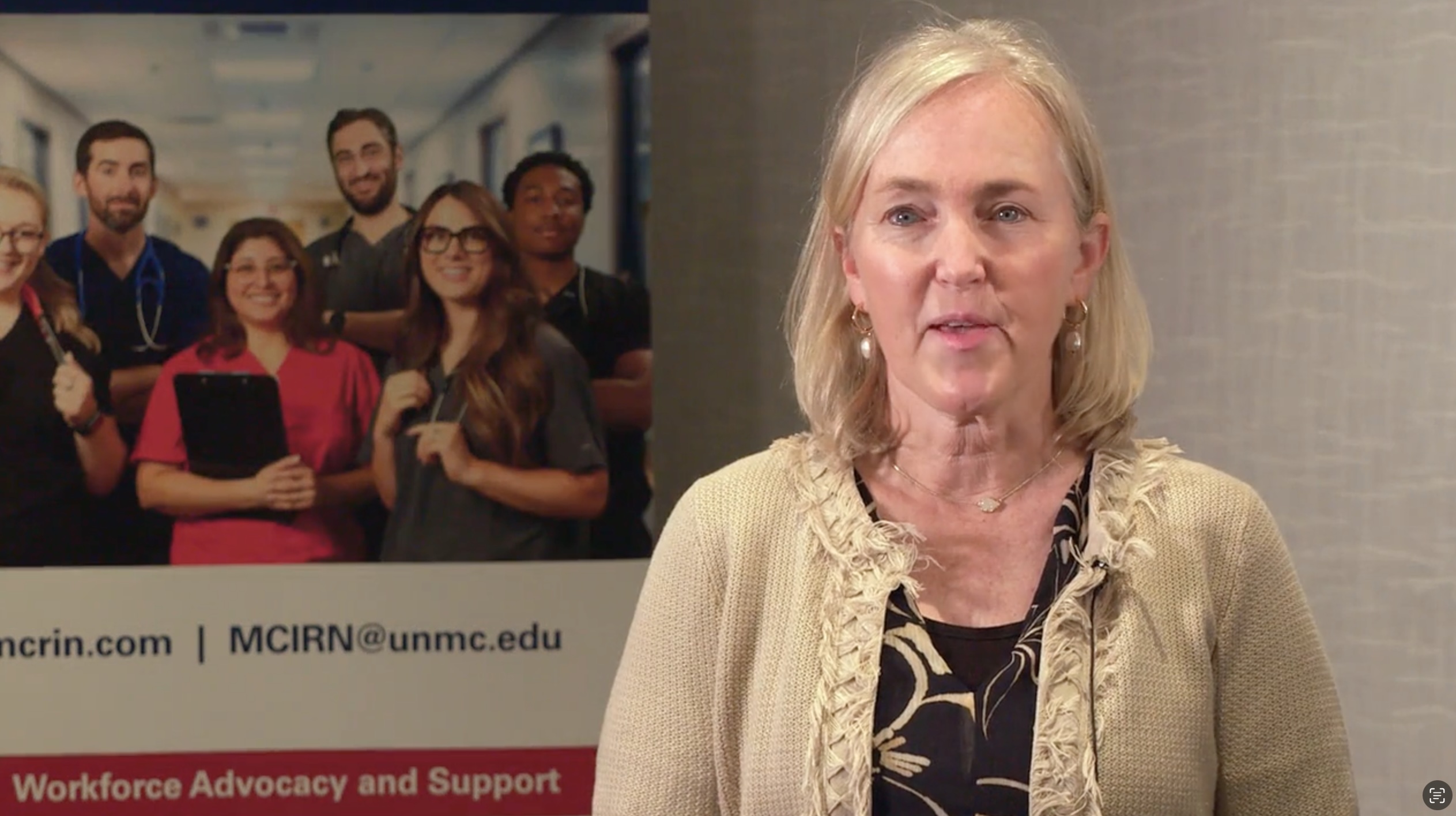
Program Aims
AIM 1
State and Regional Clinical Preceptor Landscape AnalysisComplete a comprehensive needs assessment to identify the unique clinical preceptor landscape in the state and region, to include motivating factors and barriers, that will inform the vision and creation of standardized curriculum, recruitment and retention strategies, and supportive infrastructure for clinical precepting.
AIM 2
Innovative Preceptor Academy: Tailored Training for Clinical Faculty and Preceptors Create a Preceptor Academy to train and support clinical faculty/preceptors using innovative technology, design, and approach which is both unique to the needs of the local nursing environment and amenable to scaling to a regional and national level.
AIM 3
Develop Academic-Practice Partnerships to Support Precepting Needs Enhance and create relationships with existing and new academic-clinical community partners to create new clinical faculty opportunities, assess clinical preceptor needs, address barriers to recruitment and retention, contribute to and enhance collective expertise, and harness communication networks to share Preceptor Academy opportunities and resources.
AIM 4
Enhancing Support Services for Clinical Faculty and Academy MembersLeverage existing and implement new support services to academic, peer, and social supports to optimize the success of clinical faculty or Academy members including promotion of resiliency and well-being as well as prevention of burnout.
AIM 5
Nursing Workforce Expansion Evaluation PlanDevelop and implement a comprehensive evaluation plan to assure that we are increasing the nursing workforce by recruiting, training, and producing skilled qualified clinical nursing faculty and nursing preceptors.
Program Outcomes Reporting
369
Survey
Respondents
8
Total
Events
225
Participants
Trained
- Clinician Respondents: 241; Stakeholder Respondents: 128
- Process Precept Events: 5; Facilitator Focus Events: 3
- Nurses trained with Process Precept: 217; Nurses trained with Facilitator Focus: 8
- Collaborating with Nebraska Medicine, the Nebraska Hospital Association (NHA), Nebraska Organization for Nursing Leadership (NONL), and Nebraska Rural Health Association (NeRHA)
- Presented preliminary clinician/stakeholder needs assessment survey results at the National Organization of Nurse Practitioner Faculties (NONPF) Annual Conference
- Developed a three-phase nursing preceptor program with initial and ongoing education and engagement opportunities for administration and education
- Establishing a community of practice across the region to connect academic and clinical nursing practice and provide support for the nursing workforce
146
Survey
Respondents
0
Total
Events
0
Participants
Trained
- Clinician Respondents: 111; Stakeholder Respondents: 35
- Process Precept Events: 0; Facilitator Focus Events: 0
- Nurses trained with Process Precept: 0; Nurses trained with Facilitator Focus: 0
- Consulting with the Kansas Nursing Workforce Center (KNWC) to analyze, summarize, and visualize the survey data
- Amy Garcia, DNP, MSN, RN, FAAN – Invited Speaker at the MCIRN Innovation Summit
- Dr. Kim Cornwell has been a presenter for the Kansas Hospital Association (KHA) Preceptor Academy since Fall 2023. Over 80 Kansas nurses and clinicians have attended the KHA Preceptor Academy.
276
Survey
Respondents
0
Total
Events
0
Participants
Trained
- Clinician Respondents: 193; Stakeholder Respondents: 83
- Process Precept Events: 0; Facilitator Focus Events: 0
- Nurses trained with Process Precept: 0; Nurses trained with Facilitator Focus: 0
- Over 8,000 Missouri nurses have attended the Missouri Hospital Association (MHA) preceptor academy. Additionally, MHA offers a Clinical Faculty Academy. Both programs support workforce development in the state of Missouri. https://web.mhanet.com/workforce-overview/training/
- Dr. L’Ecuyer has served as a presenter for the Missouri Hospital Association (MHA) Preceptor Academy since 2009, offering years of expertise and guidance. In 2023, Dr. Kim Cornwell also joined MHA as a presenter, contributing her knowledge and experience to the program.
- Consulting with Dr. Kristine L’Ecuyer, expert in precepting and evaluation, for curriculum development. She is the developer of the Preceptor Self-Assessment Tool (PSAT-40), an evidence-based tool to help preceptors understand the full scope of their role competencies. For PSAT-40 license inquiries, please email otm@slu.edu
- Kristine L’Ecuyer, PhD, RN, CNL, CNE – Invited Speaker at MCIRN Innovation Summit
154
Survey Respondents0
Total Events0
Participants Trained- Clinician Respondents: 102; Stakeholder Respondents: 52
- Process Precept Events: 0; Facilitator Focus Events: 0
- Nurses trained with Process Precept: 0; Nurses trained with Facilitator Focus: 0
- Nicole Weathers, MSN, RN, NPD-BC – Invited Speaker at the MCIRN Innovation Summit
Connect & Join Us in Building a Better World Together
Share your story
Inspire the next generation offering distinct viewpoint on the remarkable developments unfolding within nursing—reflecting on challenges, triumphs, obstacles, and innovations that have shaped the field.
Stay Connected
Stay connected with us to stay updated on the progress and outcomes of the program. If you require information about the program, events, & outcomes, please don't hesitate to reach out.
Events Experience
Explore our events where participants and faculty from across the United States collaborate, learn, and engage, building a supportive community dedicated to advancing nursing careers and improving patient care.
